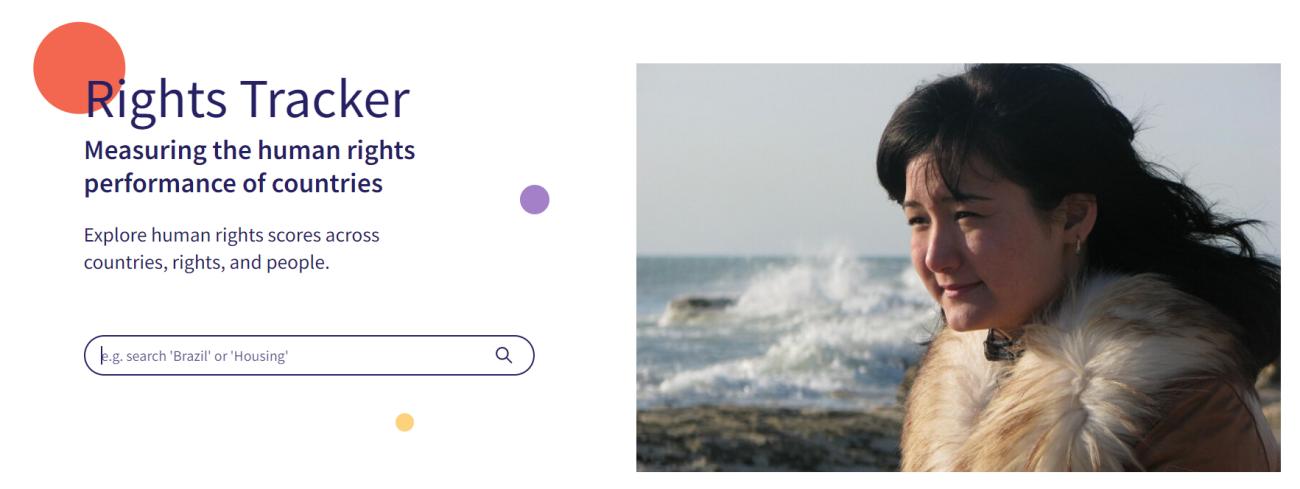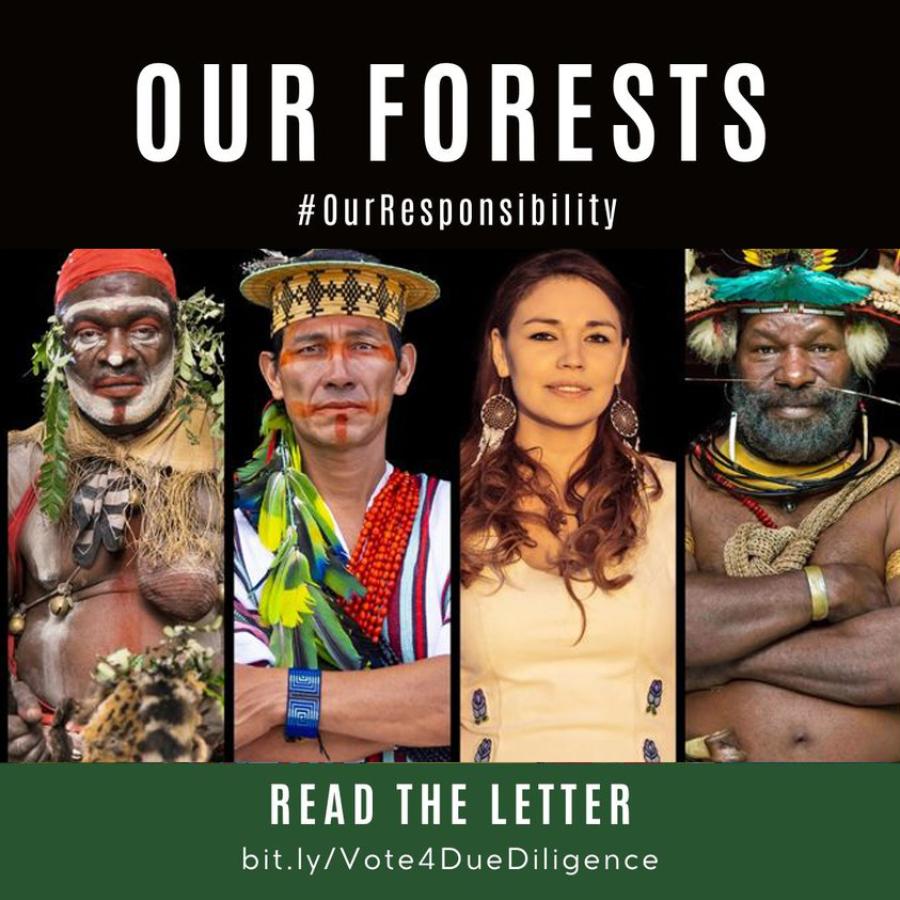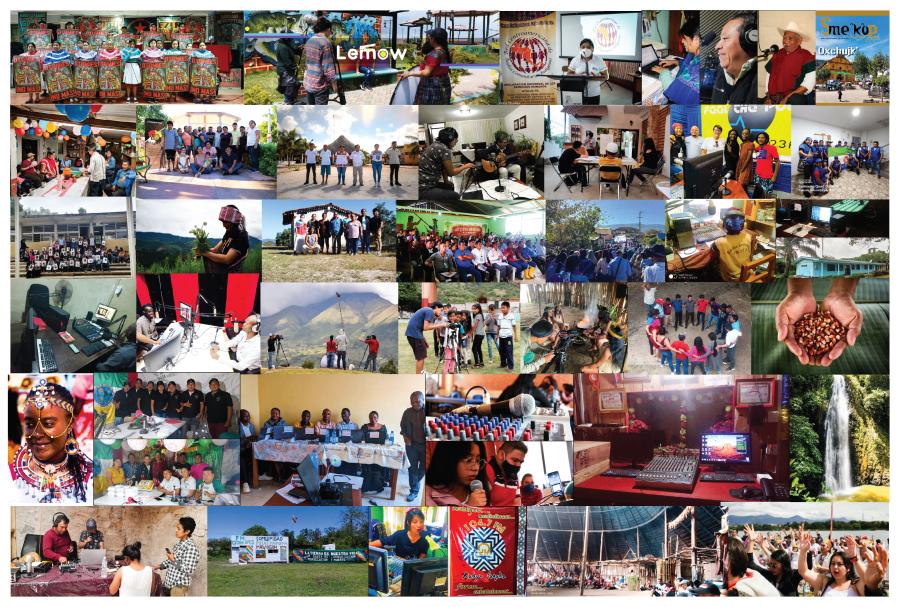
By Katya Yegorov-Crate (CS Intern)
The Rights Tracker (RT), developed and updated by the Human Rights Measurement Initiative (HRMI), is the first global, collaborative project that systematically tracks the human rights performance of countries and provides summaries of these metrics in an easy-to-access, transparent database. Further, human rights experts, researchers, academics, and other human rights supporters collaborate with the Rights Tracker, making it a singular joint effort.
The methodologies used by HRMI are codesigned and collaborative, meaning a diverse group of people--human rights experts such as researchers, lawyers, activists; journalists that cover human rights issues; National Human Rights Institution staff based in-country-- contribute their ideas, experiences, and concerns to the design process. HRMI concentrates on the human rights obligations of countries as defined in and upheld by international human rights conventions and measures how adequately each country meets them. These measurements are presented in straightforward numbers so that progress and decline over time can be easily seen and these scores are comparable between countries.
Countries’ human rights performances are evaluated using different measurement methodologies for two key sets of rights: economic and social human rights and civil and political human rights.
HRMI’s five economic and social human rights (Right to Education, Right to Food, Right to Health, Right to Housing, Right to Work) are built off internationally-equivalent data (e.g., public statistics on school enrollment and infant mortality) and reflect how each country is doing on each of the five rights, relative to what is possible for the country given their level of economic resources. There are eight civil and political human rights metrics (Right to Freedom from Arbitrary Arrest, Right to Freedom from Forced Disappearance, Right to Freedom from the Death Penalty, Right to Freedom from Extrajudicial Execution, Right to Freedom from Torture and Ill-treatment, Right to Assembly and Association, Right to Opinion and Expression, Right to Participate in Government) based on information collected straight from human rights experts watching events in specific countries. This data is collected using an expert opinion survey (translated into various languages) specifically designed to gather assessments of human rights practices in countries where these experts work. This approach allows HRMI to gather information from various organizations and enables cross-comparing of responses.
Image compares overviews of data related to safety from the state in Mexico, the United States, and Australia.
On June 22, 2022, the HRMI launched the Rights Tracker data set for 2022 which includes yearly data on five economic and social rights for 194 countries from 2007 to 2019, based on SERF Index methodology, and yearly data on eight civil and political rights for around 40 countries from 2017 to 2021. Each country has a dedicated interactive Rights Tracker page on which data about the thirteen most frequently discussed and internationally recognized human rights the RT tracks is broken down into three categories: Quality of Life, Safety from the State, and Empowerment. The Rights Tracker provides infographics that show changes over time and along gender lines. The data can also be filtered for certain groups of people, including Indigenous Peoples.
In the 2022 Rights Tracker survey, human rights practitioners identified Indigenous Peoples as being at additional risk of several rights violations in 34 countries including, but not limited to, Brazil, Mexico, the United States, Venezuela, Nepal, and Australia. The HRMI established that 56 percent of the surveyed human rights experts identify Indigenous People as being especially unlikely to enjoy their rights to education in Brazil (64 percent for Mexico, 43 percent for the United States, 38 percent for Venezuela, 40 percent for Nepal, and 71 percent for Australia).
One example of how data is presented by the Rights Tracker. This particular information comes from Brazil.
Fifty-seven percent of experts surveyed determined Indigenous Peoples in Brazil were particularly vulnerable to torture and maltreatment by the government and its agents (27 percent for Mexico, 50 percent for the United States, 56 percent of respondents identified “all people” for Venezuela, respondents didn’t select any group of people for Nepal, and 71 percent for Australia). The HRMI determined that 58 percent of expert respondents recognized Indigenous Peoples in Brazil as being at risk of having their right to opinion and expression violated (9 percent for Mexico, 50 percent for the United States, 76 percent of respondents identified “all people” for Venezuela, 8 percent for Nepal, and 29 percent for Australia).
Survey respondents were also asked to provide additional context about which groups were especially unlikely to enjoy their rights and particularly vulnerable to rights violations. Supplemental information can be found under each human rights metric. For example, groups particularly unlikely to enjoy their right to education in 2021 in Brazil included “People of lower socioeconomic status, particularly Black people and Indigenous people may have difficulty accessing the internet for remote learning during the COVID-19 pandemic." When asked to give additional background information about groups vulnerable to torture and ill-treatment by government agents in 2021, respondents for Australia mentioned, among other groups, “Children, especially Indigenous children, are detained and subject to ill-treatment in regions such as the Northern Territory, including the use of isolation and spit hoods.”
The ultimate goal of the HRMI is to compile comprehensive data sets for tracking human rights performance of countries and to share these measurements at no cost and in a transparent, accessible manner. A set of accurate, high caliber measures will ultimately facilitate improvements to human rights as individuals, communities, organizations, civil societies, and governments come to have clear and nuanced understandings of their respective country’s human rights performance. This awareness can be used to effect legal and policy changes that improve people’s lives.
For information on how human rights defenders, experts, and practitioners in countries already represented and those yet to be represented in the Rights Tracker data sets can become involved in the HRMI’s work, click here.


